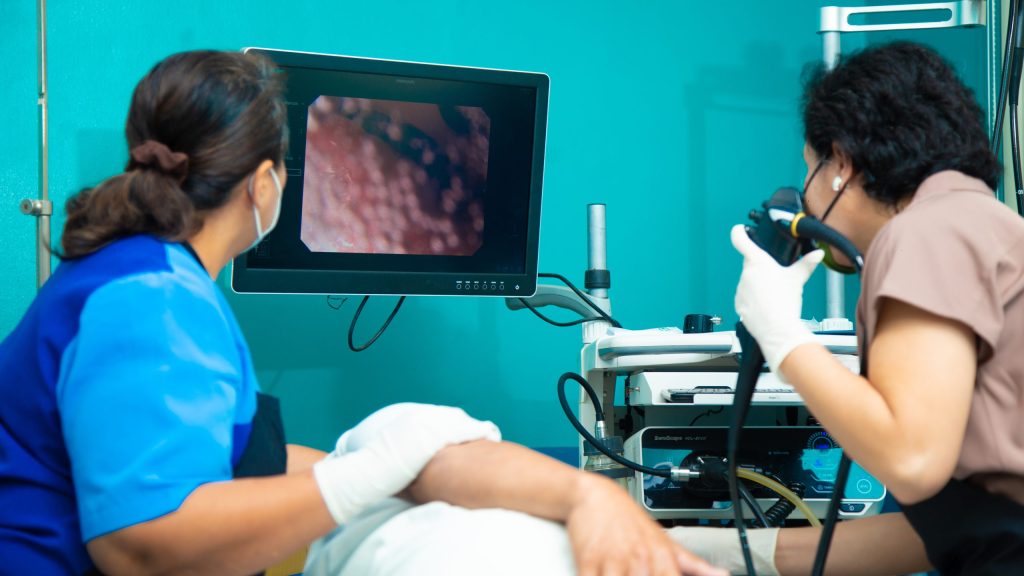Colorectal Cancer

COLORECTAL CANCER:
Things That You Must Know
By Dr. Emery Demegillo, General Surgery
On their visit to a general surgeon, these patients have the following complaints:
- Pabalik-balik ang aking ameba mahigit na anim na buwan.
- May dugo ang dumi ko.
- May itim na bagay at sipon sipon ang tae ko.
- Meron akong almoranas
- Masakit ang puwit ko, lalo na kung nakaupo ako ng matagal
- Malimit akong nagigising sa gabi para dumumi pero kunti ang lumalabas.
- Nahihilo at namumutla ako.
- Nangangayayat ako at wala akong ganang kumain.
- Hirap akong dumumi
- Maliliit, at pakunti-kunti ang dumi ko.
These patients are eventually proven to have rectal cancer on work up and biopsy.
Colon cancer is a cancer of the large intestine. Rectal cancer is cancer occurring in the last 15 centimeters of the large intestine. Colorectal cancer is one of the most preventable malignancies through screening. Screening is recommended for everyone at age 50 and can be done using fecal occult blood test yearly or colonoscopy every 5 to 10 years. Risk factors include smoking, alcoholism, high-fat, low-fiber, meat-based diet, diabetes mellitus type 2, obesity and physical inactivity.
A patient complaining of the ailments listed above, should have a thorough history and physical examination including a digital rectal exam. Colonoscopy or sigmoidoscopy should be done and once a lesion is seen biopsy is taken.
Tumor on colonoscopy and biopsy warrants further laboratory works ups. A chest X-ray or Chest CT scan and an abdominal CT scan should be taken to determine the extent of the disease and to allow proper preoperative staging and need for preoperative chemotherapy and radiotherapy. CBC, serum protein, albumin and the tumor marker CEA and other lab tests as needed should be done to assess the clinical status of the patient and prepare him/her for eventual surgery.
Surgery is the mainstay of treatment for colorectal cancer. Preoperative and postoperative chemoradiotherapy are indicated based on stage of the disease.
According to the experts, generally Filipinos tend to procrastinate seeking consult for their ailments The statistics support this so that majority of cases are in the advanced stages when seen. Reasons for this attitude are many but may include high cost of medical work up, limited availability of imaging, laboratory and endoscopic procedures in their locality and fear of eventual surgical and treatment outcomes. Information and awareness programs are in place but screening programs and proper counseling are limited.
The Palawan MMG Multipurpose Cooperative Hospital is dedicated to provide the best possible service to its patients. It is likewise committed to bridging the gap between the high cost of medical treatment and limited resources of the majority of Filipinos seeking these services. It offers all these screening (fecal occult blood test), diagnostic (CEA, histopathology) imaging (chest and abdominal CT scan) tests and endoscopic (colonoscopy and sigmoidoscopy) facilities coupled with expert specialist care.
